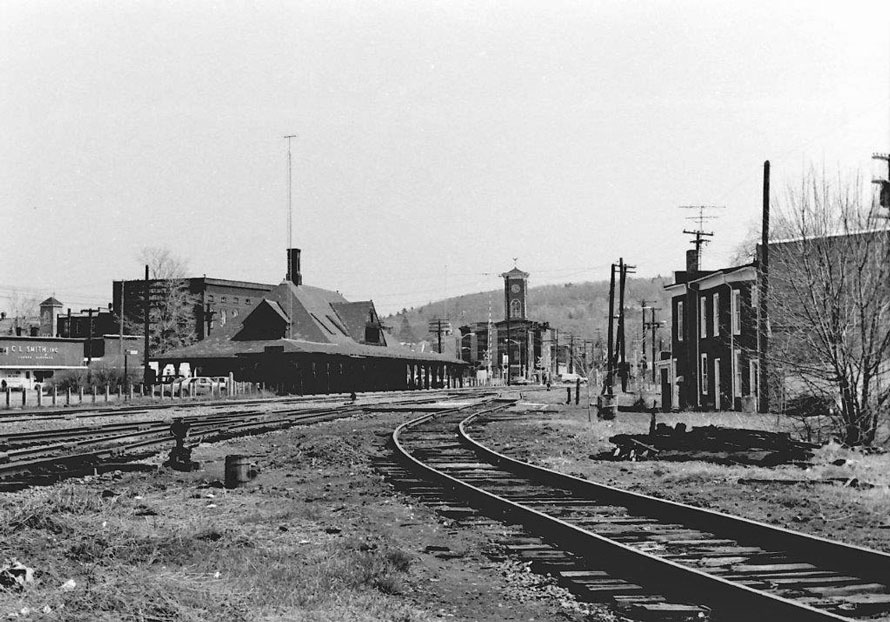
In the second half of the 1960s, I made a number of trips up the New York Central’s Harlem Division to Chatham, New York. Chatham was at the northern end (western end by timetable) of the Harlem Division, where the Harlem met the main line of the Boston & Albany Railroad. It was well over a hundred miles north of home, so these trips were adventures for a kid in his early teens.
My first trip, in 1965, was a simple one-day outing, up on a Sunday morning, and back in the afternoon. My second trip was more adventurous, since it involved an overnight stay in Chatham. The plan was for me to sleep in the equipment during its layover in the yard, but things turned out quite differently. When I got to Chatham, I met the station agent, Don McLean, who, like the rest of the Chatham boys, was very friendly to me. He said there would be no need for me to sleep in the train, since I could sleep in what was once a bunk room on the east end of the station. And for several years after, I did just that on many weekends.
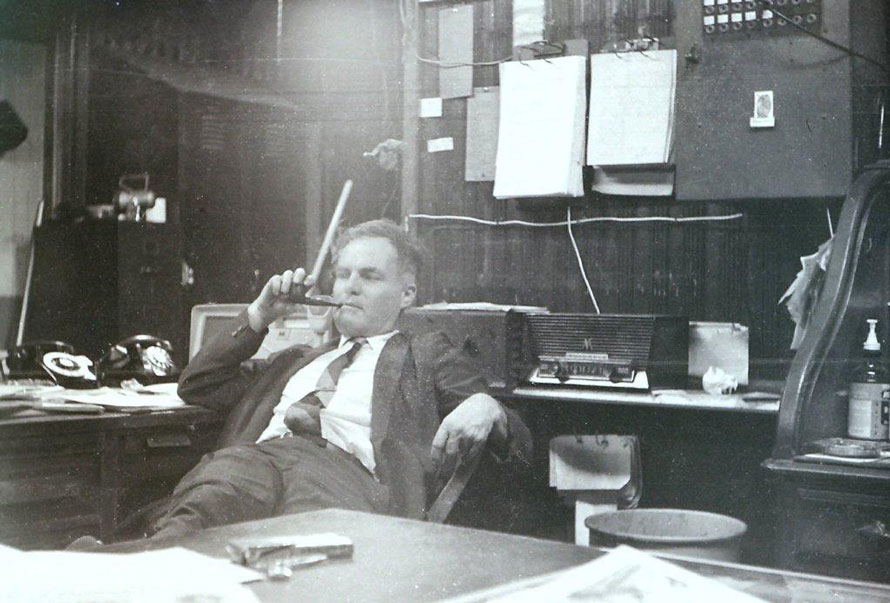
On later trips I met the day agent, George Ford, who gave me my own key to this room. George took a liking to me, and took me to the local bowling alley, where the Harlem Valley Railroad Club met once a month. Sometimes, when I stayed over on a Saturday, George took me to a little place around the corner from the station, Alvord’s Drug Store, for a hamburger lunch. He always treated me to this. When I was a kid, many of the other rails would invite me out, and that’s why I do the same for my young friends when we’re fishing or at the railroad museum where I now volunteer.
During my visits to Chatham I got to meet the two car knockers who took care of the equipment when it came in, Junior Dallas and Kenny Cesare. Junior was a funny guy, always with a big smile on his face. Kenny was more reserved but always happy to see me. He came in on Saturday nights and always had some time to chat with me about what was new, not that I had much new going on other than waiting for a week of school to go by so I could spend time on the railroad with my dad and others.
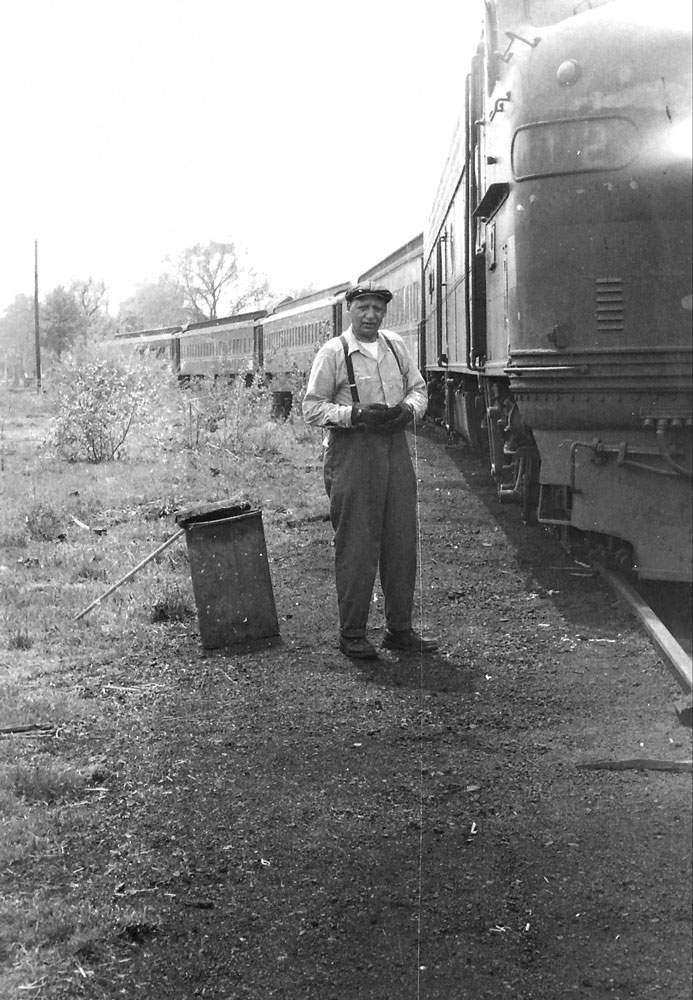
One of the conductors I got to know well and who was very friendly to me was Jack Mallon. He owned a barber shop on Chatham’s Main Street, and back then it was probably the only barber shop in America that was open on Sundays! Jack would come down and open his shop, and the crew that came in on No. 909 would come over almost every Sunday for haircuts. Jack would tell me to get in the chair and he would also cut my hair while the guys all talked about the railroad. I have no idea how much Jack charged to cut a kid’s hair, because he never took any money from me. My dad would send me up with money to pay for it since he did not like the idea that Jack did it for free. My dad never met Jack, but a few times when I was going west on Jack’s train, he would wave to my dad in Tower NW. As a matter of fact, that was the only way towermen would know some of the trainmen and engine crews, by a simple wave going by the tower.
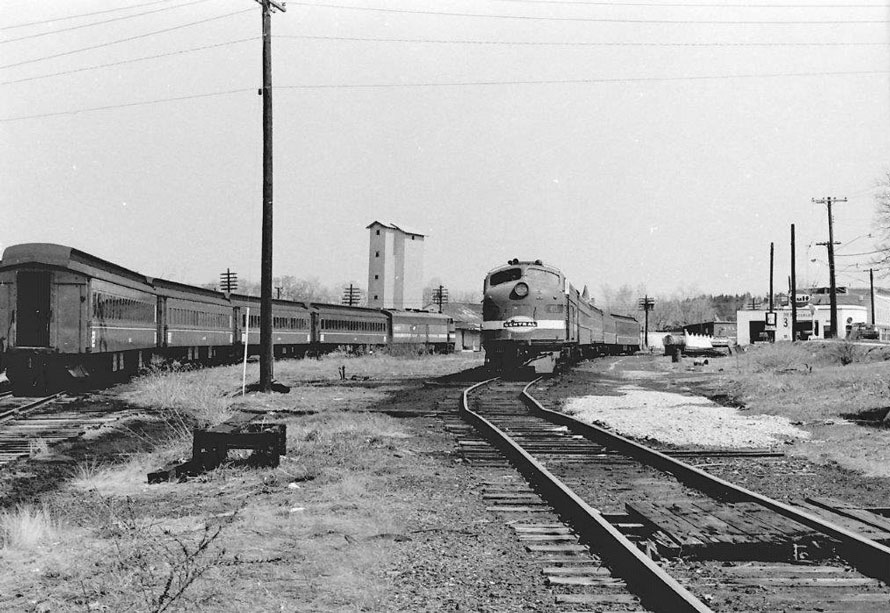
One time, because there was no school the next day, I was allowed to stay later and ride No. 960 back east. The engineer was Ray Hart. Ray was a real nice guy, and when he asked who I was, and I told him very proudly that I was the son of Jack Springer the second trick operator at NW. We made small talk and he invited me to ride down with him in the engine; it was the first of a number of cab rides that I got on the Upper Harlem. I don’t remember what we spoke about, but I do know most conversations were about my school work and how I should do better and get a good education. That is about the only thing in life I would agree with but never followed through on!
Ray ran No. 955 out of North White on Friday nights, and later I would make it a point to ride with him whenever I could. I would get on at Holland Avenue, where the trains changed power going west, and he always greeted me with a smile and called me “Young Springer.” He would then invite me up to the cab and in a few minutes, when the change of power was completed, he would blow twice on the horn when the conductor gave him a wave, and off we went, always blowing the horn going by my dad in the tower, who would give us a big wave as we went by. We high-balled to Brewster on that train, but were always checking the timetable for cutouts. Unlike the stations of today, with high-level platforms between the tracks, the stations were on one side or the other, and engineers had to make sure they did not pass a train standing in a station with the possibility of killing a boarding or de-training passenger.
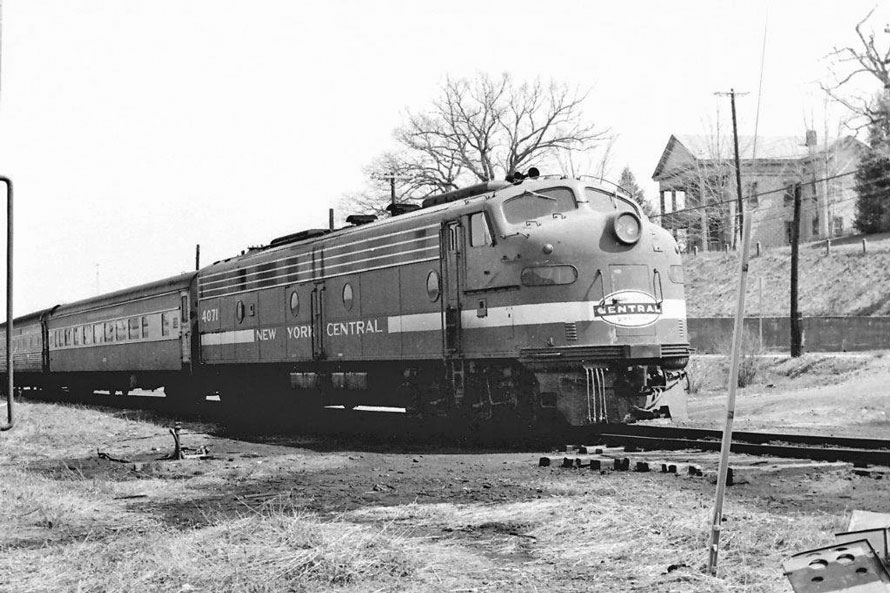
Upon arrival at Brewster, sometimes the firemen would swing off coming into the station and run over to Bob’s Diner to get coffee for the trip. I always got a hot chocolate. We would get our paperwork, and Jack Mallon would give Ray a bundle of newspapers. And off we would go. We made stops along the way, but Pawling was the next open block station, and we would look for the green light on the manual block signal pole. It was all manual block to Chatham, and we ran on paper from Brewster west. As a rule you would meet the Chatham traveling switcher at one of three places, if not at Pawling then at Dover Plains (closed as I recall) and if not there, at Millerton. If the switcher was running late, I think Millerton would be open when we got there, and we would have to get more orders.
We were way out in farm country above Millerton. By this time Ray had several newspapers rolled up and tied with rags, and he would blow the horn at different places. People knew he was coming, and would give a big wave to Ray, and he would throw off newspapers for them. This was how many people living in that area learned what was going on in the big city. Ray told me that he and his wife would occasionally drive down to visit some of these people, and they were fed big meals usually featuring fried chicken.
During summer Copake Falls could be a busy stop because of the state park nearby. The rest of the stops were N stops, only to discharge passengers. If we got three toots on the communication whistle we knew we had to stop, and if the whistle wasn’t working, the engineer slowed down and looked back for a highball from the conductor.
This was big stuff for a kid I must tell you—eating in a bar, working like a rear brakemen, and sleeping in an old hotel all on the same day!
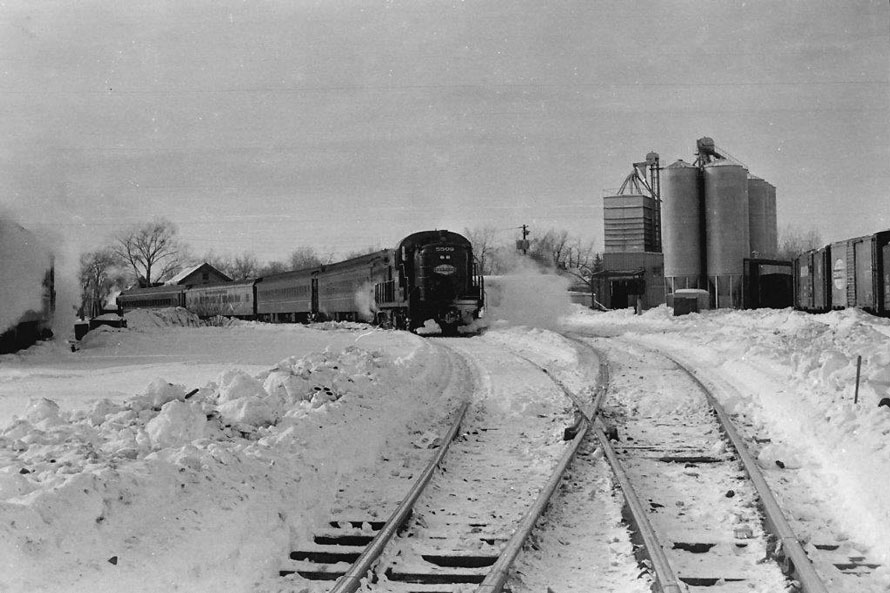
One Friday night I went up on No. 955 in a blizzard. Flash Fallon was the conductor. He always treated me like a grownup and, because he was working alone and the train was loaded with passengers, he said he would be putting me to work. This was very exciting stuff for a kid! Heavy snow in the traps and doors made it very difficult to keep them working. There was water from snow melt all over the coaches and our passengers were complaining about the “old” cars and how dirty they were, and how late the train was.
I can still see Flash with his pipe in his mouth telling the people who were complaining, “You people only ride this train in bad weather! Otherwise we would never see you! If you rode every week instead of driving your cars, we would have better equipment, better track conditions, and more trains!”
The truth usually shut them up. Today, if an Amtrak or Metro North conductor spoke that way to passengers, they would take out their phones, take pictures and record the words, and the conductor would be fired, even though speaking the truth. Today’s conductors must keep saying how sorry they are for everything, even though there would be nothing they could do.
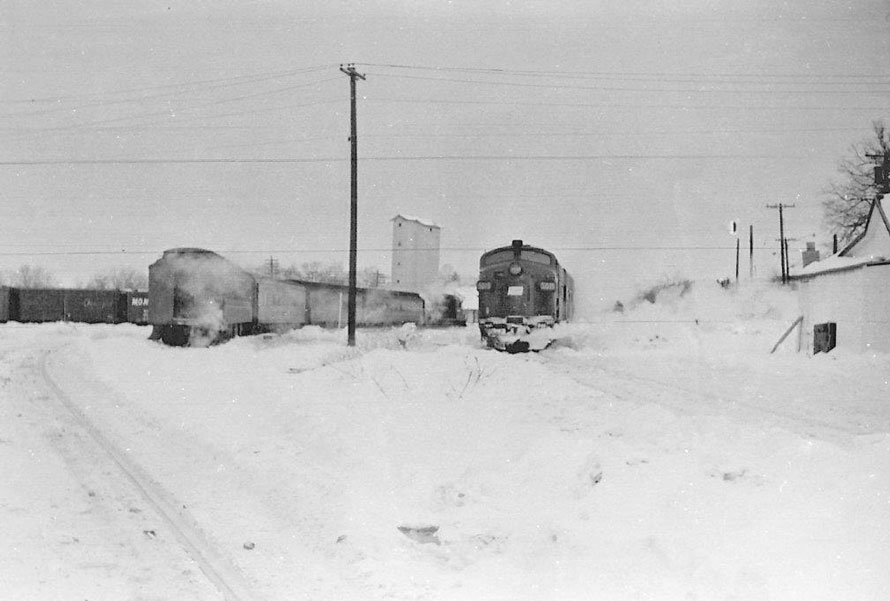
That night with Flash, I became the rear brakeman, and he had me go through the cars and call out the stops. When we arrived at each station, I opened the door over the rear trap, and after the passengers got off at the one trap he kept open and cleaned out, he gave me a wig-wag with his light, and I returned the same. He then gave a highball to the engine crew and off we went to the next station stop.
We got to Chatham very late, pulling up to the station to drop off the remaining passengers. The switches were all snowed in, but the station agent had them lined them for us. After we backed the train to the yard, Flash invited me to come to the Chatham House with him so he could buy me dinner for helping him get the train over the road. Dinner was only burgers, because it was very late. The place was pretty crowded, and everyone was talking of the big storm and about the train making it in. When the bar tender asked me what I wanted to drink, I asked for milk, and suddenly it got very quiet. “How about a coke?” he asked. I replied that I didn’t drink soda. I’d never been in a bar, so I didn’t realize just how difficult my request was. It took a long time, but when we finally got our burgers, a glass of milk appeared at the bar for me. I have no idea where it came from.
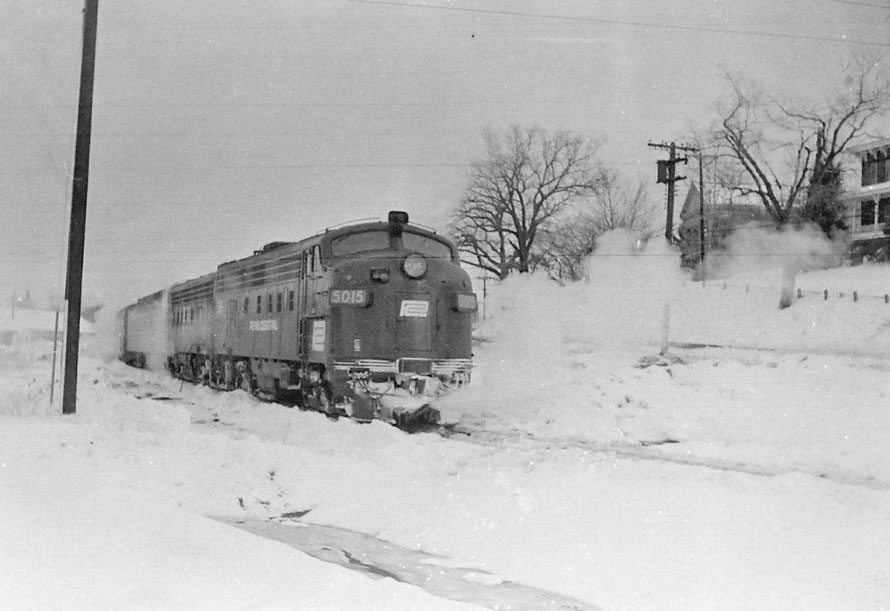
Since Flash did not have to work back, I’m pretty sure he stayed at the bar all night because he told me not to go to the station, but to go to a room the hotel had reserved for him. This was big stuff for a kid I must tell you—eating in a bar, working like a rear brakemen, and sleeping in an old hotel all on the same day!
On some of my later visits to Chatham, I returned home on Saturday morning on No. 922. It left a little bit after 7 a.m., and the only place to get something to eat before then was the Chatham Bakery, where the owner, Wally, would come in after midnight to start baking. Sometimes the crew would ask me to walk over and get some goodies. The fresh and very tasty rolls right out of the oven were great. That bakery grew and expanded into a restaurant several years later, and on a later visit I couldn’t wait to get there to buy some pumpkin bread—it was my favorite. Sad to say, they no longer sold it, and the quality of their food in general had gone downhill. The last I knew it became a Mexican restaurant. As they say, you can never go home again.
I can see him even now, with a big cigar in his mouth. When he laughed it went up and down as did his belly, and his laugh came from his heart.
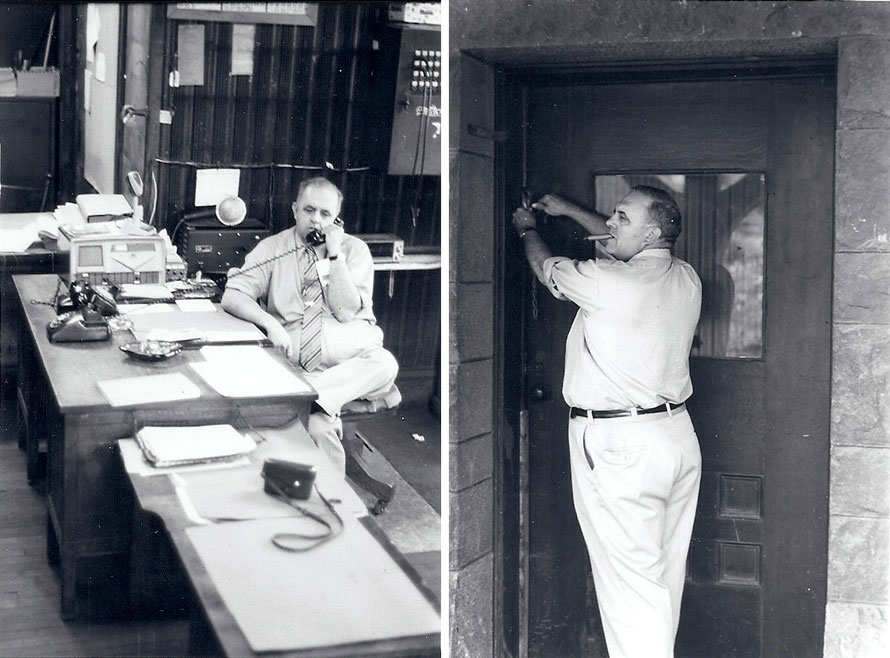
Everyone I have mentioned in this article is now gone. I was lucky to have experienced Chatham when I did; you would not recognize it now. The Chatham station was saved and is now a bank. It is listed as an historic place, and actually looks better now than it did fifty years ago. The building that I believe was the original passenger station at the east end of the yard still stands; it was always called the green shanty. I believe it became the office of the yardmaster and was where the Harlem crews signed up. At one time, Chatham was a very busy railroad center. The Rutland Milk came in over the Rut’s “Cork Screw” Division, and several trains a day went down to Grand Central Terminal. Some of these came over the B&A from North Adams.
Bill Wood lives in Chatham and loves trains. We met when he was a conductor on Berkshire Scenic Railroad. He has a small railroad museum in his home that his wonderful wife Edie let him have built. Everything from conductor uniforms from some of the Chatham boys to scoops that were used by several engineers who fired steam out of Chatham are on display. Bill saved almost every article in two different newspapers about the fight that went on to keep the trains running to Chatham. He lent them to me, and the information would make a great book to go along with Lou Grogan’s wonderful book, The Coming of the New York and Harlem Railroad. A story could be written based on what Bill saved and shared with me.
I want to thank George Ford, Jr. for sharing some of his wonderful pictures with me for this story as well as information from timetables from 1965. Skip, as he is called, took many more pictures than I did, since he was older and was working. His dad was the operator who befriended me. I can see him even now, with a big cigar in his mouth. When he laughed it went up and down as did his belly, and his laugh came from his heart. He was the last operator at Chatham station when it closed after they lost the passenger train service in the early 70’s.
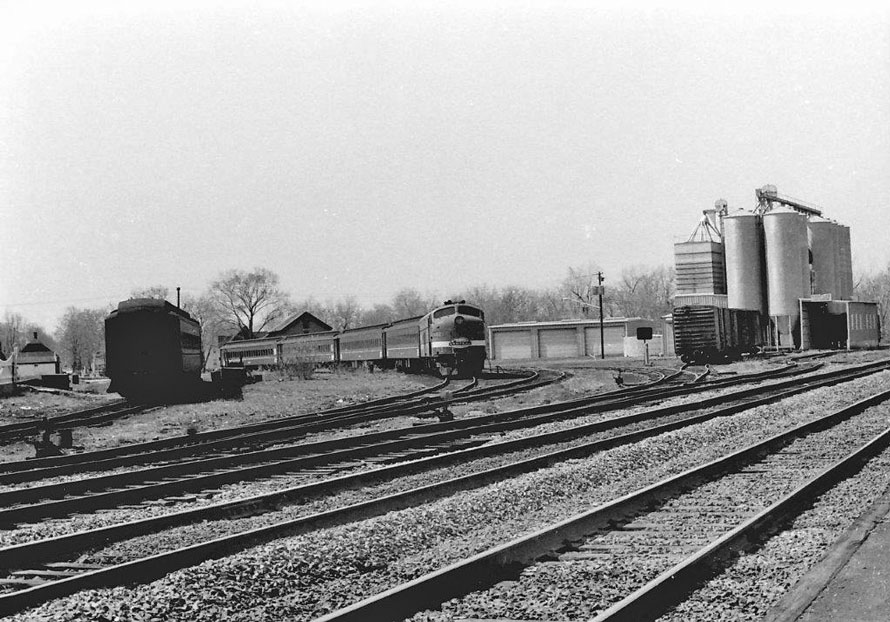
From 1975 to 1985, I was on jobs running from New Haven, Connecticut to Selkirk. As I passed through Chatham, I thought of the men I have named in this story. In my mind, they all had big smiles and waved. They were proud that I had hired out and that I was doing well. I will never forget them.
Since I wrote this my good friend Bill Wood has passed away. Bill was very well known by many crews both on Amtrak and CSX because he stood on his porch waving to them when they went by his home across the tracks. A friend of mine Ryan Strong, who was the conductor on the Lake Shore got to know Bill by his waving and dubbed him the “Mayor of Chatham,” told me Bill was sick. Ryan had looked for Bill three times and noticed that his car had not moved. So he contacted me to let me know something was not right. When the Rutland RR convention was held in Chatham several years ago Ryan came to meet the Mayor. Ryan although young and never worked for the Central knows the meaning of Brotherhood and Family.
On June 19th we buried Bill. When they say the Lord works in mysterious ways they’re not kidding. As Bill was carried out of the funeral home, a CSX freight came by blowing the horn for the three crossing. Then as the preacher was saying words and a sailor was playing taps over his casket, at that exact moment another train came by its engines working hard going east blowing its horn for those three crossings.
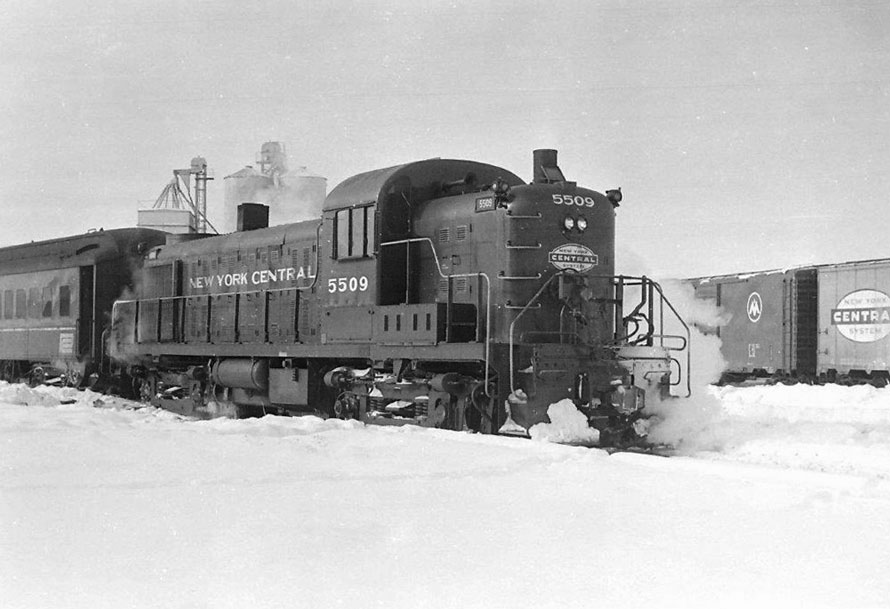
Most of this took place over 50 years ago, while I was growing up.
John Springer – Photographs and text Copyright 2019
This was a great article! A peek into a time that unfortunately has now disappeared forever. Great photos. Much appreciated!
Thank you Jim, your right and thats to bad really I was lucky to have been around for much of the “good old days”
Wonderful!!
Thank you
John OUTSTANDING article ! Very well written and interesting. You’ve memorialized the life and unique friendships and experiences that prove working on the railroad was so much more than a job, but a life experience. WELL DONE !
My great grandfather, and namesake, Bill Roberts, signed on as a brakeman in 1906, running freight on the Harlem Div up the West side of Manhattan to Hillsdale, NY. Around 1920 he became a conductor, working passenger service GCT to Chatam (he lived in White Plains). He retired in 1940. 34yrs of service. I have his hat badge, his watch and decades of pay receipts, rule books & employee timetables. Also a 1920’s era photo of him standing in front of the then-new MU’s in the North White Plains yard.
Wonderful memories of Chatham back in the 1960s. Fran Seltzer
Do you remember Ralph McKern? He worked in Chatham for the railroad and was my grandfather. He lived on Hoffman St. so he walked to work!
No I do not, I’m sorry
Thank you Jim! I rode from GCT to Chatham a number of times as a kid and always loved the ride. This Bronx kid eventually lived in Columbia County and your article brought back many great memories.
Thank you for sharing this story. I loved reading it.
absolutely fantastic John !!!! THX so much…and help from GF appreciated…
John, Excellent reading and great pictures!
Thanks Bob I miss seeing you!
Cudos to John !!! I myself am a retired conductor railroader with PC,Conrail andCSX. I remember on in my younger yrs. switching Steeter shoe !!!! loved my 41 yrs. of railroad work !!!
Excellent article and great pictures John. I myself am a retired railroader. Work for Penn Central, ConRail and Metro North. Did some track work on the upper Harlem line up to Millerton.
Just got around to reading this piece, John, and you have my deep gratitude for sharing these memories: What a world those old-time railroaders opened up to you, and what a life you made because of it. I grew up a few years later, and I did not become a railroader, nor did I take pictures of the railroaders who shared their lives with me in the Bronx in the 1970s and early ’80s — and I regret this last omission. But you did the right thing by Don and Junior and Kenny and George, and through a story like this they live on. Priceless.
We all regret not taking more pictures, I was a kid and money was tight.
I thoroughly enjoyed the article and photos. And what names…..”Flash” , Wally, etc. ! Chomping cigars and tossing newspapers from the train….. stuff of a bygone railroad era.
Greg you’re so correct, today you can’t even take a picture from the engine like I did!
John great article. I remember Don McClean and George Ford (I am also a retired PC/CR/AMK Conductor, 40 yrs service; also worked with Tom Allen —-known to us RR’ers as “Teddy Bear”.)
Don and George were Operartors on west end of the Old B and A when we singled track and they were in charge of hand thrown cross overs when we had to operate against current of traffic by crossing over to run on Tk 1 or Tk 2.
Switched out Chatham Yard when working GE-1 and 2 out Pittsfield. By the time I was working, Passenger jobs were gone, and upper Harlem service was local frt White Plains to Chatham on Fri, layover to Sat morning back to White Plains with Plate C cars for Grand Union wharehouse in WP. Cars exceededed 14’2”” in height, too high to go under IRT 4 line at MO Tower.
Jimbo K
John, just reread this article, even better second time around. By the way, we worked together a few times. You were a pilot engr on the Maybrook line Beacon to NH Or westbound a few times. Also you were my regular engr on Selkirk to Cedar Hill a few times when I was the conductor.
Great memories and they bring back a lot of my own since my dad (Big John) was a conductor on the Harlem and Put divisions. I remember Flash Fallon with his pipe he was quite a character as were most of railroad men of that time. I was never lucky enough to ride the train to Chatham but rode in the engine on the switcher to Millerton and the Bud Cars to Dover Plains. So many great memories and people on the Harlem Division, I often think back to those days and will always cherish the memories. Thanks John.